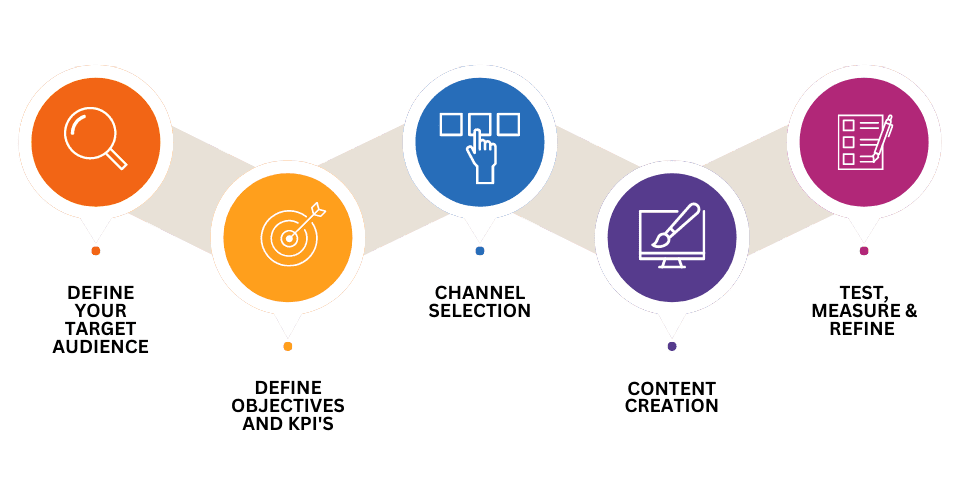- Have any questions?
- +91 96020 93137
- +91 93525 62080
- info@worldseoservices.com
Data-Driven Decisions: Using Analytics to Enhance Your NGO’s Brand Strategy

Harnessing the Potential of Video Marketing in Promoting Your IVF Clinic
August 11, 2023
From Clicks to Conversions: Crafting a Winning Immigration Brand Strategy
August 12, 2023Introduction:
In today’s digital age, data is the driving force behind informed decision-making. For non-
governmental organizations (NGOs), leveraging data analytics can be a game-changer in refining and
enhancing their brand strategy. By harnessing the power of data, NGOs can gain valuable insights
into their target audience, measure the effectiveness of their campaigns, and make data-driven
decisions that lead to more impactful and successful initiatives. In this article, we will explore the
importance of data-driven decision-making for NGOs and how analytics can be utilized to strengthen
their brand strategy.
- Understanding the Value of Data in NGO Branding:
Data is the cornerstone of any successful branding strategy. For NGOs, understanding their
audience, donor behavior, and the impact of their campaigns is critical to achieving their mission.
With data-driven decision-making, NGOs can go beyond mere assumptions and rely on concrete
evidence to shape their brand identity.
By collecting and analyzing data from various sources, such as website traffic, social media
engagement, and donor demographics, NGOs can gain valuable insights into what resonates with
their audience and what needs improvement. This data-driven approach helps create a brand that
aligns with the values and expectations of their supporters, fostering stronger connections and
building trust.
- Targeting the Right Audience:
One of the key benefits of data analytics for NGOs is the ability to identify and target the right
audience. Data-driven insights allow NGOs to understand their supporters better, such as their
preferences, interests, and motivations for contributing. By segmenting their audience based on this
data, NGOs can tailor their messages and campaigns to resonate with specific groups, thereby
maximizing their impact.
For instance, if data analysis reveals that a significant portion of donors is interested in funding
education-related projects, the NGO can focus on promoting such initiatives to attract more
donations from this segment. Understanding the target audience empowers NGOs to communicate
more effectively and build lasting relationships with their supporters.
- Measuring Campaign Effectiveness:
Data analytics plays a pivotal role in evaluating the success of past campaigns. By tracking key
performance indicators (KPIs), such as donation conversion rates, website traffic, or social media
engagement, NGOs can assess the effectiveness of their initiatives and identify areas for
improvement.
With data-driven insights, NGOs can determine which campaigns generated the most significant
impact and which strategies fell short of expectations. This knowledge is invaluable in refining future
campaigns and allocating resources more efficiently to achieve desired outcomes.
- Enhancing Personalized Donor Experiences:
Personalization is becoming increasingly crucial in the digital landscape, and NGOs are no exception.
Donors appreciate personalized experiences that resonate with their interests and values. Data
analytics enables NGOs to gather donor preferences and engagement history, allowing them to
tailor communication and engagement efforts accordingly.
For example, by analyzing a donor’s giving history and interests, NGOs can send personalized thank-
you messages, update them on projects they care about, and even suggest new initiatives aligned
with their preferences. Such personalized interactions strengthen the emotional connection
between the donor and the NGO, fostering long-term loyalty and support.
- Improving Resource Allocation:
NGOs often operate with limited resources, making efficient resource allocation a top priority. Data-
driven decision-making provides insights into which initiatives are most successful, allowing NGOs to
prioritize and allocate their resources wisely.
By investing in projects that have a proven track record of success, NGOs can maximize their impact
while minimizing wasted resources on less effective endeavors. Analytics-driven resource allocation
ensures that funds, time, and effort are directed towards projects that align with the organization’s
mission and yield the most significant positive change.
- Identifying Emerging Trends and Opportunities:
The digital landscape is dynamic, with trends and opportunities continuously evolving. Data analytics
enables NGOs to stay ahead of the curve by identifying emerging trends and new opportunities that
align with their mission and values.
For instance, by monitoring social media trends, NGOs can spot rising public interest in certain
causes and design campaigns to tap into this growing momentum. Staying agile and responsive to
data insights positions NGOs to leverage emerging trends and seize opportunities that can elevate
their brand and impact.
Conclusion:
In conclusion, data-driven decision-making is a potent tool that empowers NGOs to refine their
brand strategy, engage their audience effectively, and maximize their impact. By leveraging data
analytics, NGOs can better understand their audience, measure campaign effectiveness, and allocate
resources efficiently. Personalization, targeted campaigns, and agility in responding to emerging
trends further contribute to building a strong brand identity.
Embracing data-driven decisions in the NGO sector is not only a competitive advantage but also a
means to achieve their core mission with greater efficiency and effectiveness. As the digital
landscape continues to evolve, NGOs that prioritize data-driven strategies will be better positioned
to create lasting change and make a difference in the world.


